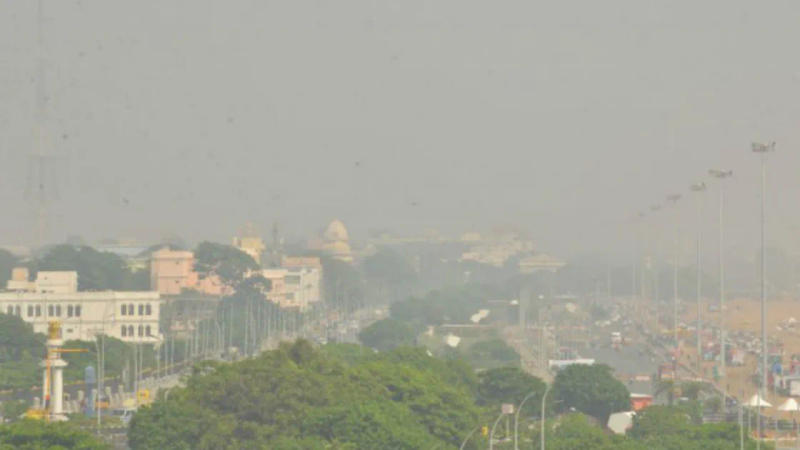Published 21:38 IST, August 26th 2024
Local emissions to surge by 11% in NCAP cities by 2030: Study
The local emissions in most cities that are covered under the National Clean Air Programme (NCAP) are forecasting a surge by at least 11 per cent by 2030.

Surge in local emissions: The local emissions in most cities that are covered under the National Clean Air Programme (NCAP) are forecasting a surge by at least 11 per cent by 2030 as compared to the emission levels in 2019. This has been reported according to a new study that showcased a surge in local emissions for these cities.
The study was conducted by the think tank Center for Study of Science, Technology, and Policy (CSTEP). This study has examined about 76 cities out of the total 131 NCAP cities over 2.5 years to witness this surge in emissions.
The study's findings found that only eight of the 76 cities are anticipated to achieve a 40 per cent reduction in four major pollutants, PM10, PM2.5, sulphur dioxide, and nitrogen oxides, by 2030, compared to 2019 levels.
"Our study shows that most cities covered under the NCAP will not be able to achieve a 40 per cent reduction in local emissions even by 2030," said Anirban Banerjee, project lead at CSTEP.
The study also highlighted that, local emissions are expected to increase by 11 to 45 per cent in the studied cities by 2030, compared to 2019 levels. This has resulted in significantly worsening pollution.
The study predicted the contributions of the four major pollutants from various sources until 2030 and levied the share of each for the base year 2019, and 2019. These results were verified against domestic fuel consumption and transportation surveys, which were carried out in more than 70 per cent of the cities under investigation.
The findings of the studies have suggested that without targeted interventions, local emissions will likely increase by 2030.
To satisfy NCAP targets and attain cleaner air, the report has suggested giving priority to targeted interventions for key sources of emissions, such as industries, transportation, construction, and open burning in these cities.
A portal visualising the study's findings will be launched on Wednesday at the sixth edition of the India Clean Air Summit (ICAS), a premier conference on air pollution that will be organised by CSTEP, taking place from August 26 to August 30.
With a base year of 2017, the NCAP was launched in 2019 and is India's first national project to set clean air targets. Its goal is to reduce PM10 pollution by 20–30 per cent by the year 2024. The updated goal is a 40 per cent reduction by 2026, with 2019–20 serving as the base year.
(with PTI inputs)
Updated 21:38 IST, August 26th 2024